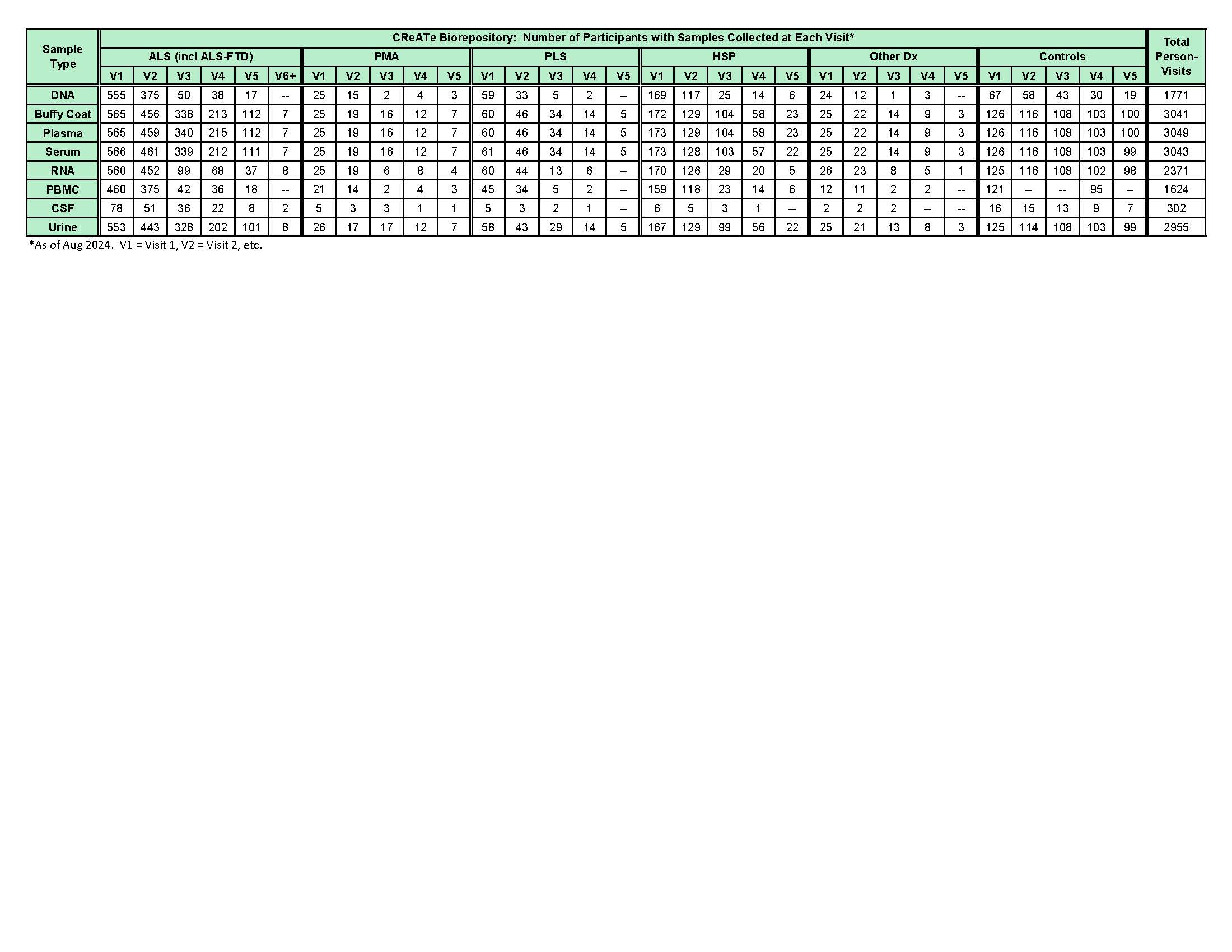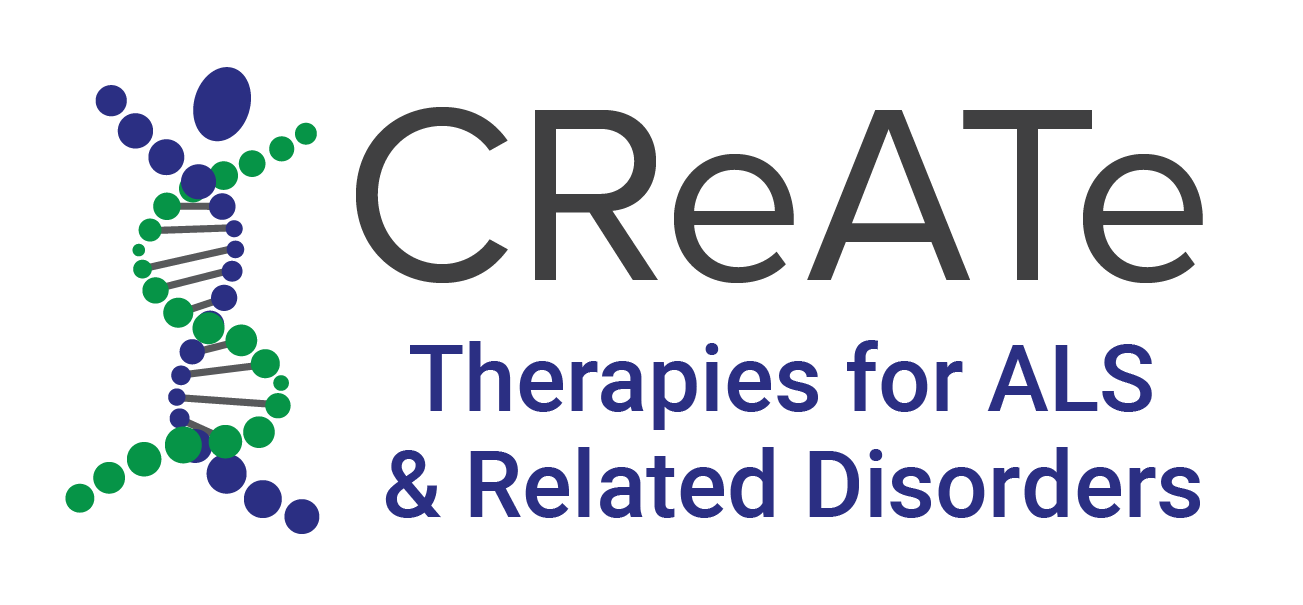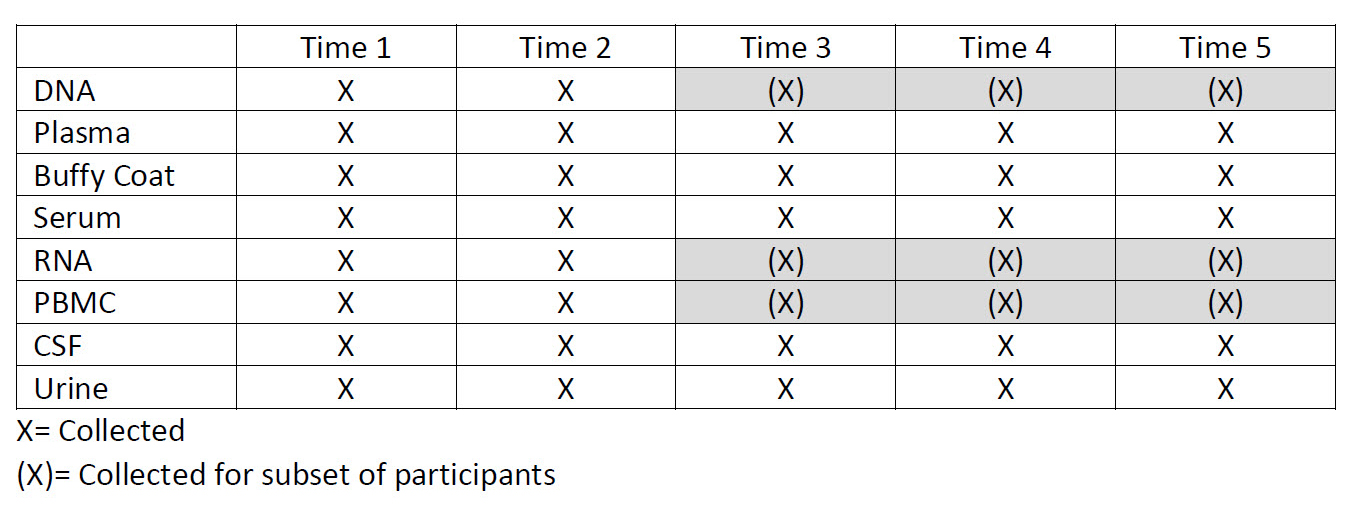CReATe Biorepository
Biomarker development is a high priority for the amyotrophic lateral sclerosis (ALS) and related disorders community. While biomarkers may add value in facilitating earlier disease diagnoses, the most pressing need is for biomarkers that might aid therapeutic development. There is increasing recognition that the development and validation of such biomarkers will require multi-center collaborative undertakings in which biological samples are collected, stored, and processed in a harmonized manner from patients who are followed longitudinally with careful collection of phenotypic data.
The CReATe Consortium is establishing a repository of biological samples collected from patients participating in the Phenotype-Genotype-Biomarker (PGB) (NCT02327845), Phenotype-Genotype and Biomarkes 2 (PGB2) (NCT04875416), and TRIAL READY (NCT03912987) protocols. These studies include patients with ALS, ALS-frontotemporal dementia (ALS-FTD), primary lateral sclerosis (PLS), progressive muscular atrophy (PMA), hereditary spastic paraplegia (HSP), multisystem proteinopathy (MSP), and controls. The biorepository contains a broad array of biological samples collected from every participant at each study visit according to the schedule summarized in the table below.
Anticipated Schedule of Biological Sample Collection/Storage
Biological samples are collected, processed, and stored using a strict set of standard operating procedures (SOPs). For a copy of these SOPs, click here.
Request Samples
Samples are stored at the John P. Hussman Institute for Human Genomics (HIHG) Biorepository at the University of Miami. These samples may be requested to support biomarker studies within the CReATe Consortium and within the broader scientific community. To request samples, please complete the three forms and email them to CReATeBiorepository@miami.edu.



